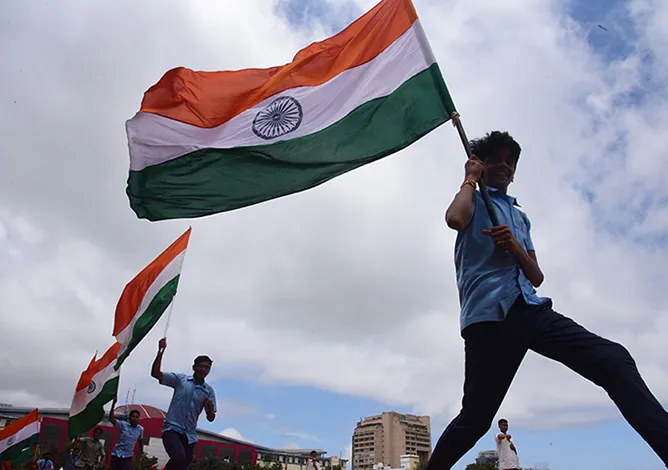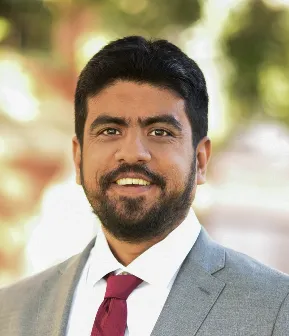-
CENTRES
Progammes & Centres
Location
India, through its foreign policy choices and its multi-alignment strategy, has built its reputational security in significant ways in the last decade

The year 2023 witnessed India hosting its first G20 Summit. The success of its G20 Summit also saw India democratising foreign policy amongst its general populace, with over 200 satellite events as part of the G20, organised in several parts of the country. As India marches towards 2047—100 years of political independence—it is interesting to note how India has enhanced its reputational security in a complex and competitive geopolitical environment.
Reputational security, as defined by Professor Nicholas J. Cull of the University of Southern California, is the degree of security in the world that comes from being understood as of value to the wider global community. According to Cull, reputation has two components: The offensive and defensive components. According to him, “reputational building is partly an offensive strategy—telling effective stories abroad about who a state is and what it wants. It also has a defensive component of working to eliminate negative aspects of life and build an admirable society at home. But there is a second defensive dimension that touches on the nature of the information environment: working to be understood “to avoid what you do not want” and retaining the advantage in a competitive digital world. He further adds that ‘Reputation has become “central to an international struggle” for primacy and global leadership in the world—as an end in and of itself as well as a means to broader economic, security, and geopolitical ends.’
While this could be discussed and debated if reputational security is an extension of public diplomacy, it forces one to carefully think about how reputation can enhance one’s security. With this in mind, India, through its foreign policy choices and its multi-alignment strategy, has strategically invested to build its reputational security in significant ways in the last decade.
While this could be discussed and debated if reputational security is an extension of public diplomacy, it forces one to carefully think about how reputation can enhance one’s security.
The first is the transformation from the need to be ‘Vishwa Guru—the world's guru—to ‘Vishwa Mitra'. Prime Minister Narendra Modi and External Affairs Minister S. Jaishankar have, time and again, emphasised the emergence of India as the ‘world’s friend or friend of all’, i.e., ‘Vishwa Mitra’. This shift, importantly, does not give the impression of an unequal relationship. It clearly puts into perspective how we collectively grow. In action, this was discernible at the time of COVID-19 during vaccine diplomacy, when several countries benefited from vaccines sent from India or its theme for the G20 as ‘One Earth, One Family, One Future’ that was communicated from the onset of the presidency. In geopolitics, it cannot be just about oneself, and this initiative to collectively work and be there for each other as a friend considerably contributes to one’s reputational security. At the G20, the single most talked-about initiative was the inclusion of the African Union in the global multilateral forum, something that should have happened a long time ago. With this, India has demonstrated that collective vision and inclusion are key. The shift does not necessarily mean to undermine the ancient indigenous contribution of India or prevent it from charting its own path; it only enhances mutuality and public opinion globally.
The second is India’s contribution to climate change through behavioural change. India has continued to maintain its firm commitment to its climate goals as well as initiate important behavioral change initiatives that will aid in the fight against climate change. Behavioral change will take its time, but it will serve long-term goals. India’s Mission LiFE (Lifestyle for Environment) initiative highlights how solar energy has been used for common household purposes as a traditional carbon mitigation measure. Today, there is a conventional use of solar panels on rooftops for electricity generation. India’s efforts extend beyond its borders, as it gifted solar panels to countries at the United Nations showcasing its commitment to sustainable energy practices on a global scale. These are important practices that are sure to enable lesser developed countries to follow suit.
India’s efforts extend beyond its borders, as it gifted solar panels to countries at the United Nations showcasing its commitment to sustainable energy practices on a global scale.
Third, prior to the G20, India organised the Voice of the Global South Summit, which was aimed at spelling forth its vision for the year-long presidency. 125 countries from the Global South participated in this summit. And after the G20, India hosted the second edition of the Voice of the Global South summit. One of the main highlights of the 2nd Summit was the inauguration of the think tank, the Global South Center of Excellence, to be called ‘DAKSHIN’, an acronym for Development and Knowledge Sharing Initiative. It will serve as a think tank and a repository of knowledge and development initiatives that promote greater collaboration among developing nations. Former Indian diplomats have maintained that over 50 percent of the G20 New Delhi Leaders Declaration is exclusively related to the needs of the Global South. However, a prudent evaluation of this is only possible after the implementation of the decisions of the New Delhi Declaration of the G20. Overall, a dedicated outreach to the Global South twice in the calendar year shows how serious India is about its reputational security. India should also simultaneously look to invest in its strategic communications capabilities in the Global South, which are enablers for public opinion.
Fourth, through its important policy initiatives on sanitation and hygiene (Swachch Bharat Mission), water access, electricity access, health, and reducing multi-dimensional poverty, India seeks to pivot to the importance and attainment of the UN Sustainable Development Goals (SDGs). NITI Aayog, the government’s official think tank, has brought out key evaluation mechanisms that categorise states as per achievers, frontrunners, performers, and aspirants in pursuit of these goals. Besides this, the government’s Aspirational Districts programme is in alignment with the overarching SDGs. Notwithstanding, several states in India take the help of experts from abroad to solve their societal challenges and constructively contribute to the attainment of the SDGs.
NITI Aayog, the government’s official think tank, has brought out key evaluation mechanisms that categorise states as per achievers, frontrunners, performers, and aspirants in pursuit of these goals.
Last but not least, India’s strong emphasis on multilateralism. India has resorted to much of its efforts to orient itself policy-wise as well as in its strategic communications efforts to showcase that it favors conversation and collaboration as opposed to any form of confrontation. There is no doubt in the minds of foreign policy experts and analysts that no one person or nation can solve all of the world's problems. It will need collaborative thinking and problem-solving, and India looks committed to it.
These are important strides taken by India towards enhancing its own reputational security while also bringing back focus to the theoretical framework’s relevance in today’s context. Importantly, these are strides that would be well-received not just by the Global North but also by the Global South and developing countries. India is well and truly democratising its reputational security by not just restricting it to the West and elites but to all parts of the globe. There is no doubt that there will be many challenges that India faces in establishing and communicating its reputational security, however, its firm commitment to global stability and cooperation through thought, word, and deed would be the most appropriate response in maintaining it in the times to come.
Sudarshan Ramabadran is a policy expert, author, and international communications and public diplomacy professional.
The views expressed above belong to the author(s). ORF research and analyses now available on Telegram! Click here to access our curated content — blogs, longforms and interviews.

Sudarshan Ramabadran is a policy expert, author and international communications and public diplomacy professional. The views expressed are his own. ...
Read More +